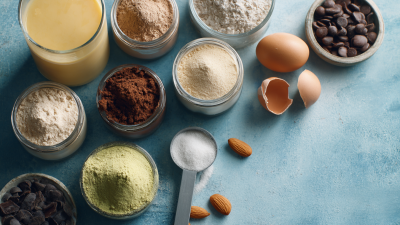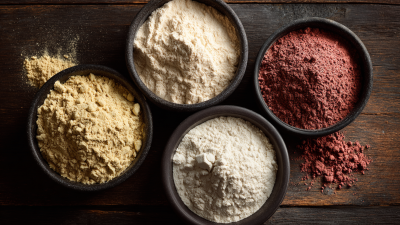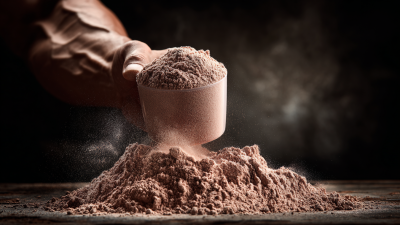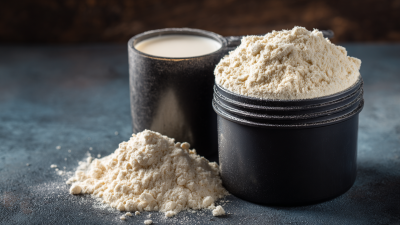As the demand for dietary supplements continues to rise, protein powders have become a staple in many health-conscious diets. According to a recent report by Grand View Research, the global protein supplement market was valued at approximately $18.5 billion in 2020 and is expected to grow at a compound annual growth rate (CAGR) of 8.6% from 2021 to 2028. Among these supplements,
"Protein Powder With Iron" has garnered attention for its dual benefits of enhancing muscle recovery while providing an essential mineral that many individuals, particularly athletes and women of childbearing age, may lack in their diets. Iron plays a crucial role in oxygen transport and energy production, making it vital for anyone engaged in regular physical activity.
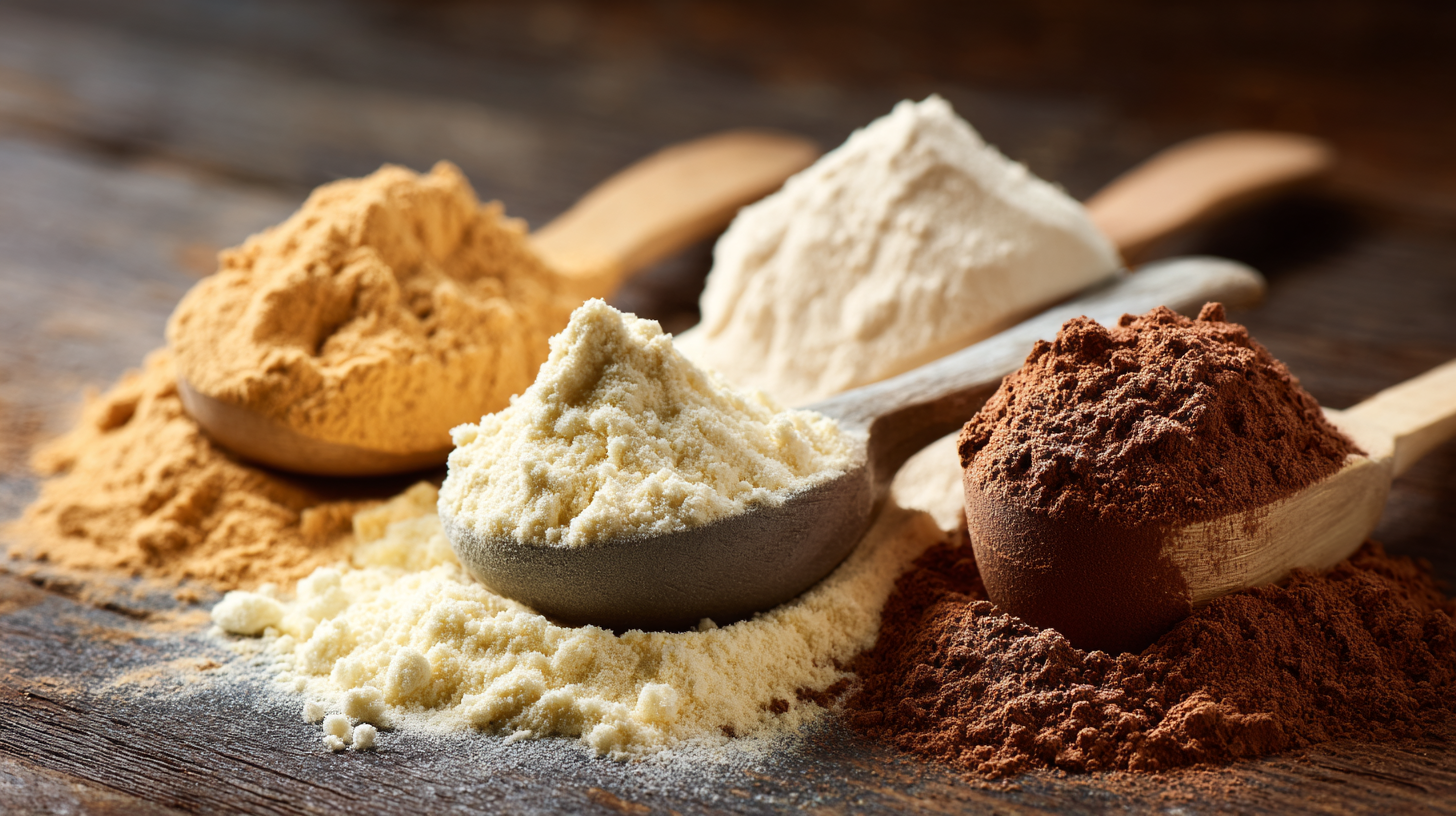 When selecting a protein powder, understanding your nutritional needs and considering products enriched with iron can significantly enhance your overall health and performance. This guide explores essential factors to consider when choosing the best protein powder with iron to meet your unique dietary requirements.
When selecting a protein powder, understanding your nutritional needs and considering products enriched with iron can significantly enhance your overall health and performance. This guide explores essential factors to consider when choosing the best protein powder with iron to meet your unique dietary requirements.
When selecting a protein powder with iron, it's essential to first identify your nutritional goals and requirements for supplementation. Whether you're aiming to build muscle, recover from an illness, or manage chronic conditions, understanding your specific needs will guide your choice. For instance, athletes often require higher protein intake for muscle repair and growth, while individuals recovering from cancer may benefit from enhanced formulations that include additional nutrients such as EPA, DHA, and leucine to support their overall health and nutritional status.
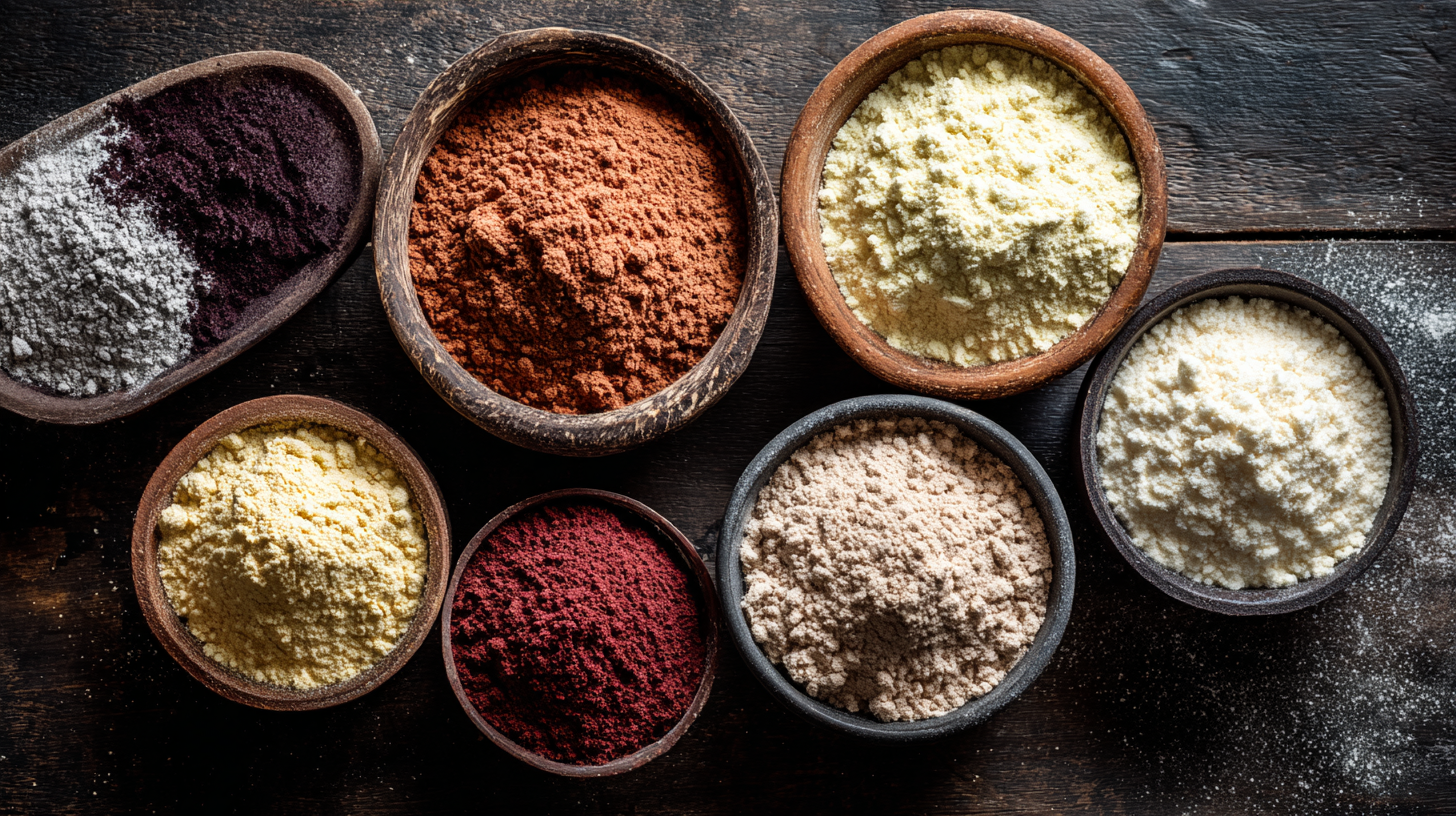
Additionally, consider your dietary restrictions and any health conditions. For example, those managing diabetes should be cautious of protein powders that contain added sugars. It's also important for certain populations, like children, to avoid excessive protein intake from supplements due to potential health risks. Ultimately, choosing the best protein powder involves a careful assessment of your health goals, dietary needs, and any specific nutritional requirements, ensuring that the supplement you select aligns with your lifestyle and contributes positively to your overall well-being.
When choosing the best protein powder with iron for your nutritional needs, it's essential to understand the various types of protein powders available on the market. Popular options include whey, casein, soy, pea, and collagen protein. Each type offers unique benefits and is suited for different dietary preferences and goals. For instance, whey protein is known for its quick absorption and is often favored by athletes for muscle recovery, while casein provides a slower release of amino acids, making it ideal for overnight consumption.
Soy protein is a great plant-based alternative, rich in essential amino acids and suitable for vegetarians and vegans. Pea protein is another plant-based option that is hypoallergenic and easily digestible, making it an excellent choice for those with food sensitivities. Collagen protein, derived from animal sources, supports skin, hair, and joint health, but may not offer a complete protein profile. Identifying the right protein powder not only depends on dietary restrictions but also on the specific nutritional content, including iron levels, to ensure it meets your health goals effectively.
When choosing a protein powder, evaluating its iron content is crucial, especially for those with specific dietary needs. Iron plays a vital role in transporting oxygen in the blood, and its deficiency can lead to fatigue and weakened immune function. According to the National Institutes of Health, adult men need about 8 mg of iron per day, while women require approximately 18 mg, particularly those who are premenopausal. Therefore, selecting a protein powder that supplements your diet with adequate iron can help meet these daily requirements.
Tips: Always check the nutrition label for the specific amount of iron in each serving of the protein powder you consider. Look for options that highlight both the type of iron (heme or non-heme) and its bioavailability, as some forms are absorbed better than others. For instance, whey protein may contribute to better iron absorption compared to plant-based alternatives, which may contain phytates that inhibit iron uptake.
Another aspect to consider is the balance of protein sources in the powder. Research published in the Journal of Nutrition highlights the benefits of combining different protein sources for improved amino acid profiles and mineral absorption. Blended powders that contain both whey and plant proteins can be a good option for enhancing iron intake while providing a diverse array of essential nutrients.
When selecting a protein powder with iron, understanding how to read labels is crucial for identifying quality ingredients and additives. According to a report by the Council for Responsible Nutrition (CRN), more than 77% of consumers consider ingredient transparency an important factor when choosing dietary supplements. Look for protein powders that list their sources first, whether it’s whey, casein, or plant-based proteins like pea or soy. The quality of the protein can significantly impact its effectiveness in supporting muscle repair and growth.
In addition to protein sources, scrutinize the form of iron included in the formula. The National Institutes of Health (NIH) recommends ferrous sulfate or ferrous bisglycinate for better absorption compared to other forms like ferrous fumarate. Avoid products laden with artificial sweeteners, fillers, and preservatives; a recent analysis from the Food Standards Agency noted that many powders contain unwanted additives that can interfere with nutrient absorption. By paying attention to these details, you can choose a protein powder that not only fits your lifestyle but also meets your nutritional needs.
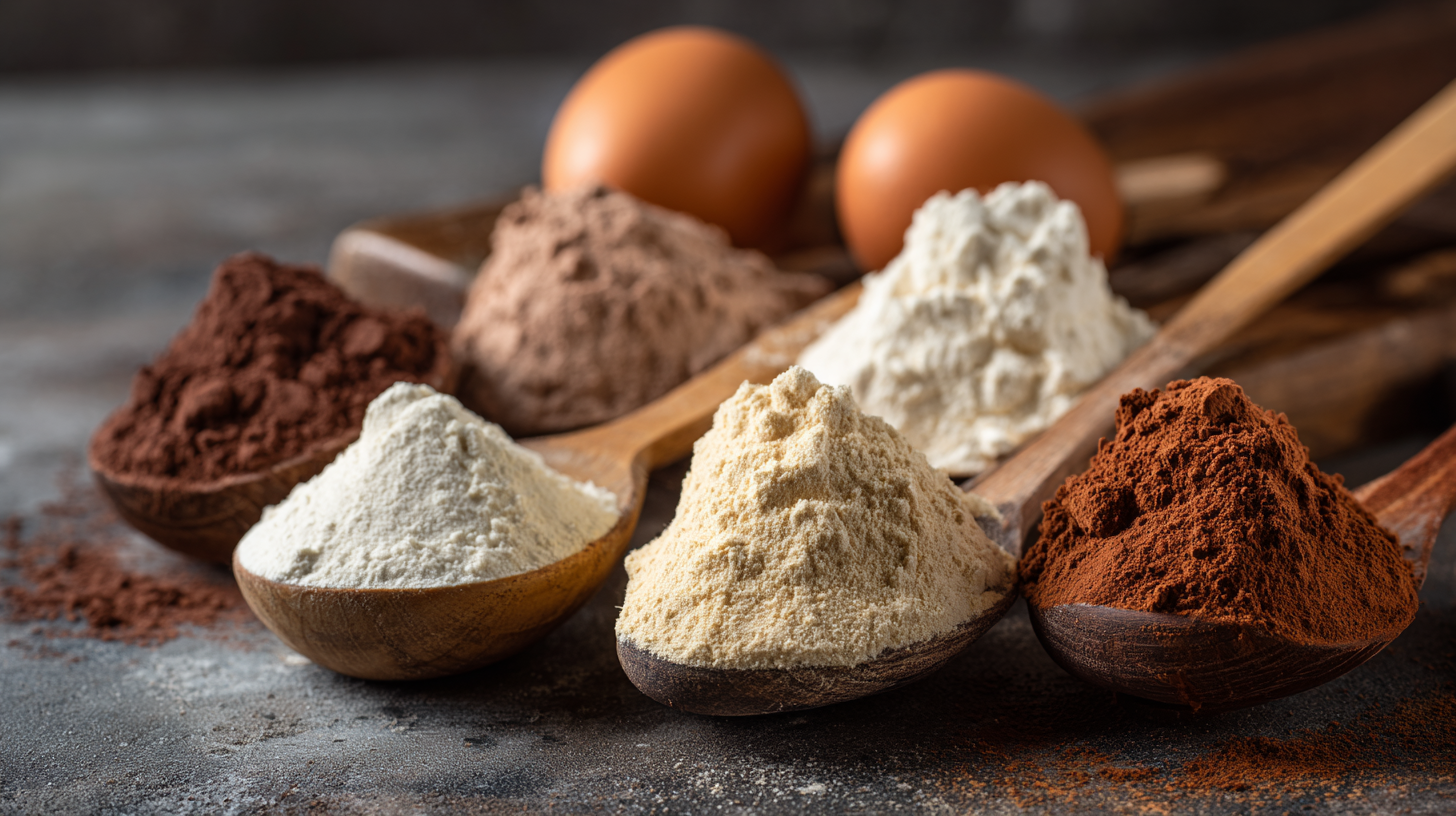
When choosing a protein powder with iron, it's essential to consider factors such as taste, mixability, and pricing. Recent analyses have shown that the best protein powders not only deliver high protein content but also cater to diverse flavor preferences. For instance, health experts have identified several top-rated powders that emphasize the importance of taste without artificial ingredients, making them enjoyable and convenient to use daily. In 2025, taste tests conducted by nutritionists suggest that consumers prefer flavors that resemble desserts or beverages, including clear whey options that blend seamlessly into various drinks.
Mixability is another critical factor to keep in mind. The latest reviews highlight that top protein powders blend well with water or milk, creating a smooth texture that enhances the overall experience. Products with superior solubility are favored by fitness enthusiasts and casual users alike, as they save time and effort in preparation. Additionally, pricing remains a pivotal consideration—many consumers seek budget-friendly options without sacrificing quality. As highlighted in various reports, there are options that offer high nutritional value at competitive prices, making them accessible for all fitness levels. These insights are invaluable for anyone looking to incorporate protein powders with iron into their dietary regimen effectively.
| Type of Protein | Iron Content (mg per serving) | Taste Rating (1-10) | Mixability Rating (1-10) | Price per Serving ($) |
|---|---|---|---|---|
| Whey Protein Isolate | 2 | 8 | 9 | 1.25 |
| Pea Protein | 4 | 7 | 8 | 1.50 |
| Soy Protein | 6 | 6 | 7 | 1.10 |
| Brown Rice Protein | 3 | 5 | 6 | 1.20 |
| Hemp Protein | 7 | 4 | 5 | 1.70 |

